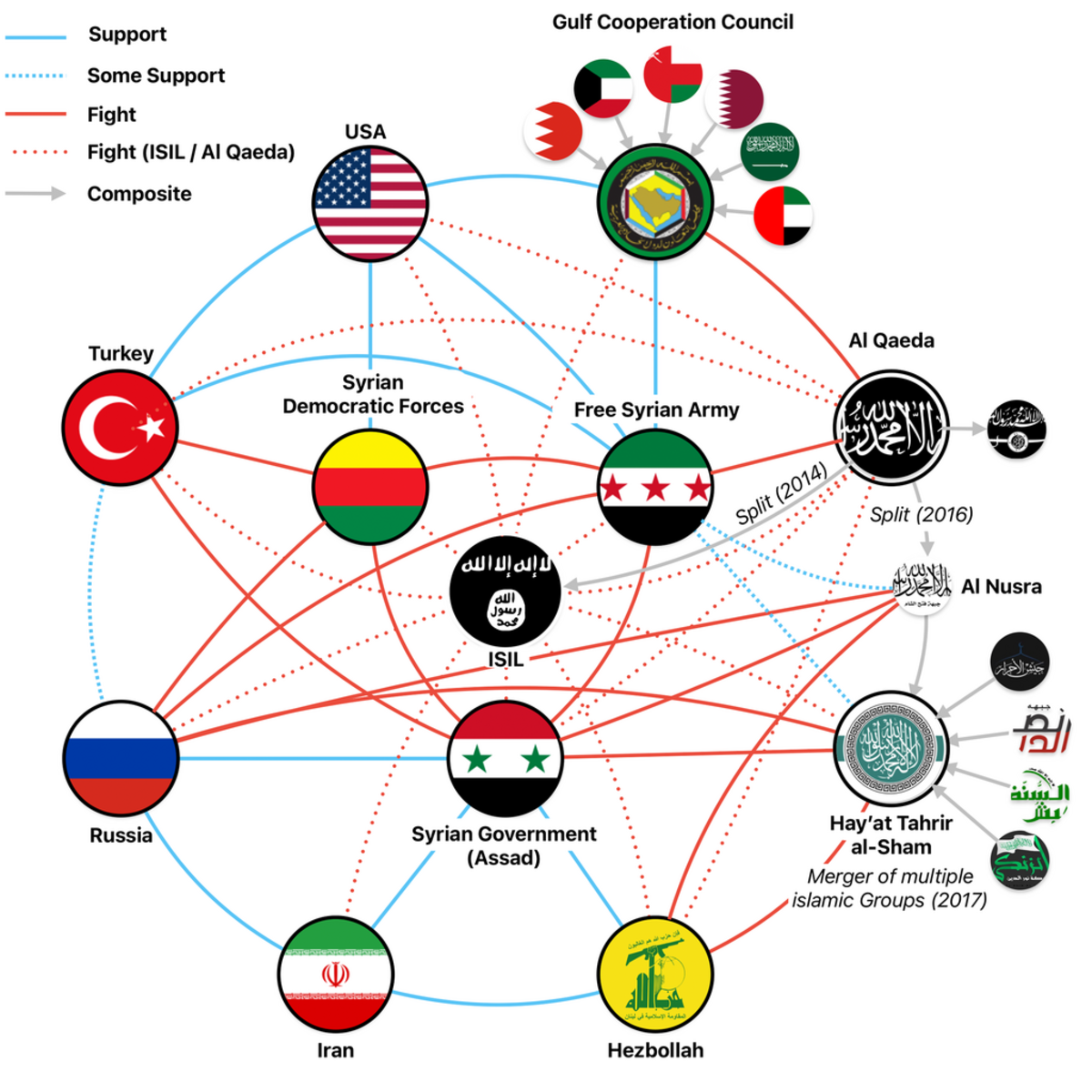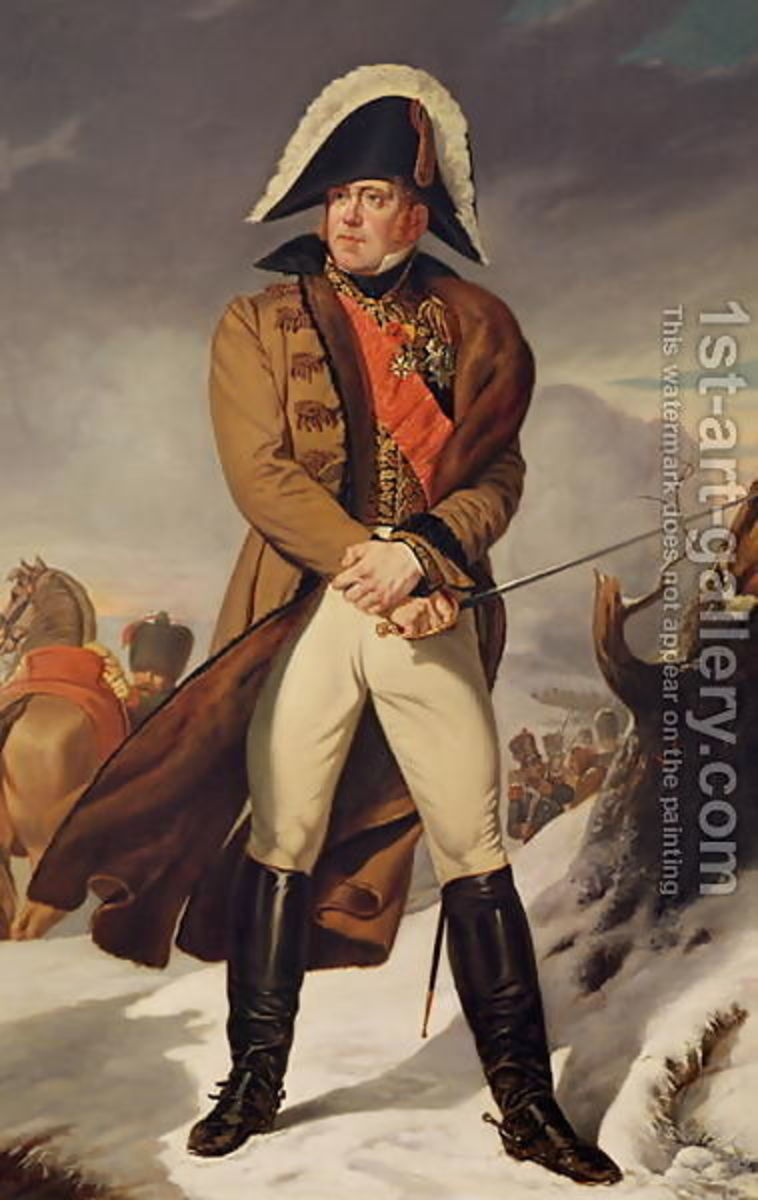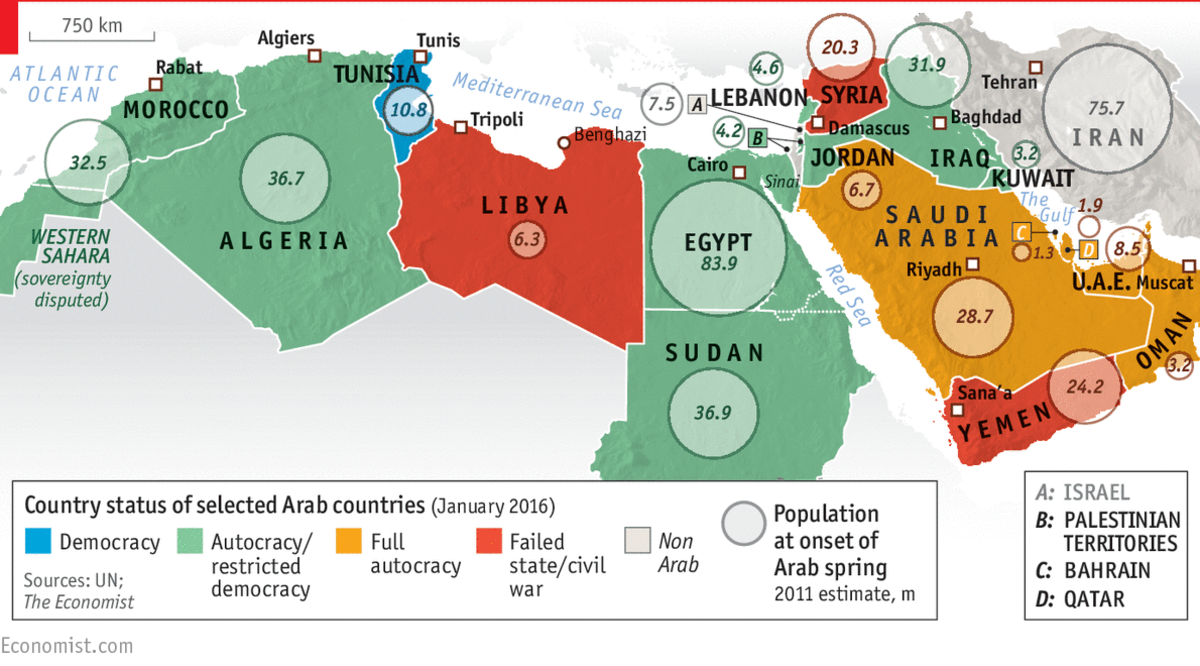Arab Winter of Discontent edges forward





When Tunisian leader Zein Al Din Ben Ali stepped down in 14 January after Tunisia became ablaze, the previous 17 December, the Arab street held its breath. When Husni Mubarak of Egypt decided to call it a day after an 18-day uprising that brought millions out on the streets, everyone looked hopeful. It was being termed an Arab Spring, a new dawn of fundamental political reform leading to real democracy and disrobing from old dictatorial eras.
For a while it seemed the Arab world was going that road. Noises, rumblings, demonstrations and protests were being heard across the region. The Egyptian Revolution shattered the psychological barrier of fear among the masses. The strong dictatorial, authoritarian Arab state was being questioned since its formation back in the early 20th Century.
Popular eruptions broke out in Algeria, Morocco, Bahrain, Oman, Yemen, Jordan and movements in Kuwait, United Arab Emirates and Saudi Arabia and strong-hold Syria. People were saber-rattling with their hands and arms. This was the case even in Syria despite the fact we never heard much about that simply because all media eyes focused on Egypt.
On 26 January, 2010, and in a move to emulate Mohammad Bu Azzizi who sparked the Tunisian Revolution, Syrian Hassan Abu Aqleh also set himself on fire, but the move was contained, more like suppressed, by the authorities.
It was however, the beginning of the protests that gained momentum two months later in the southern town of Deraa which sparked mass protests all over the country that reached to Latakia in the north-eastern part of the country. The Arab Spring was continuing.
But this was no Jasmine Revolution for the Arab iron fist proved a sure order showing an uglier face of the repression that long been practiced in the Arab world with the Syrian and Libyan regimes beginning the fight for their survival. They literally, and have been doing so for the last months, transparently killing their own people.
Colonel Muammar Qaddafi and Syrian leader Bashar Al Assad immediately turned their guns on their civilian population, deploying extreme military power against anyone who dared to protest against any regime change.
Whereas in Tunis and more so in Egypt, the organized military took a stand with the people, or at best kept a "neutral" role that resulted in the toppling of their regimes. Right from the start, the army presented itself as a people's army defending the whole of the country in previous wars against Israel. There was as well a deep link between the military and society as officers and soldiers had deep roots in their villages and towns, relatives and friends.
The situation was far more complex in Libya and Syria. The face of repression, one-man rule, one-party rule, powerful state apparatuses quickly came, gripping with vengeance, lack of compassion, states enveloping upon themselves, trying to keep dangers at bay.
In the first three months, the number of Libyan civilians deaths staggered to 15,000 according to estimates by the provisional government in Tripoli. Indeed the number of deaths has been quickly raising right from from the beginnings reaching a couple of hundreds within the first few days. Within the first month, 6000 had been reported dead, and then 10,000 and now 15,000.
Similarly in Syria, figures of civilian deaths have been estimated at 900 in two months of the uprising with daily figures shooting up. It was glaring as on days, 40, 50 and 60 deaths were reported. Figures of course have been difficult to come by as no independent verifications were allowed with and the international media surpressed.
Gaddafi appeared as waging a very definite war against civilians through his army, militias and African mercenaries and sparing no effort in killing anyone who calls for regime change. For the erstwhile leader who built himself an image of being a nationalist head in the region over the years, his warmongerings were losing him much support among the Arab masses. But at this stage, he probably didn't care because of his throne and seat at stake.
In the Syrian case, similar tactics were being used. Syria has a strong army, but the backbone of the regime lies in the numerous security service apparatuses operating on the streets of the country, they have no compunction in barreling their armories against their people as evidenced by the daily shootings and tramplings of men being made to lie on the ground and stepped on.
In Libya, it was Gaddafi's "ruling family", and his numerous sons and protégés that stayed in power all these years through controlling the oil purse strings and playing one tribe against another. In Syria the security apparatuses cushioned themselves around controlling the Baath Party where the military intermingled with politics through historical coup de tats.
While President Bashar Al Assad came to power on a reform ticket in 2000, there was very little he could do to change the system which was locked in military-political-sectarian interests dictated by powerful groups under the guise of national security.
Yemen is the third case. Although Yemenis have been clamoring daily for change since January 2011 with mass protests against the 32-year-old regime of Ali Abdallah Saleh, the rate of killings have been slower as if this is a good thing.
The number pf deaths have been reported after three months to be under a mere 200 and around 3000 injured. The tempo of deaths has been less while President Saleh, who keeps promising he will step down, repeats the number of security forces killed stands at around 154.
In spite of its "boisterous" and dynamic character, Yemen has exhibited arguably less 'bloody' tendencies than the Libyan and Syrian examples whose regimes show no signs of relenting their seats, they are not looking for a way out for the moment but digging their heels, in the hope a final hour reprieve would be in the offing.
It is clear as well both of these regimes see their role as ideological, seeing themselves as leaders and regimes for life, as a sort of vanguard. Gaddafi for instance firmly believed he had a "right", arguing he can't resign from a post he does not have, seeing himself not as president of a country but leader of a permanent Libyan revolution. He kept saying he will not leave his country unless he is carted off dead. But six months later when the revolutionary fighters entered Tripoli at the end of August 2011, he was nowhere to be seen scurrying for his life, with his regime all but in tatters.
He became the latest casualty of the Arab Spring with his swift removal from power. Other leaders and regimes are today trying for reform agendas. Some like Jordan, Morocco and Algeria are actively considering changing bits and pieces of their constitutions, while others pushing for reforms of their political systems.
But the real pressure is today on Syria. The regime there is doing its utmost to stay in power despite mass opposition to Baath rule. Revolutions and changes in governments appear to have a momentum of their own. While Assad has his guns out, many are banking on the fact that he will be forced to leave.








